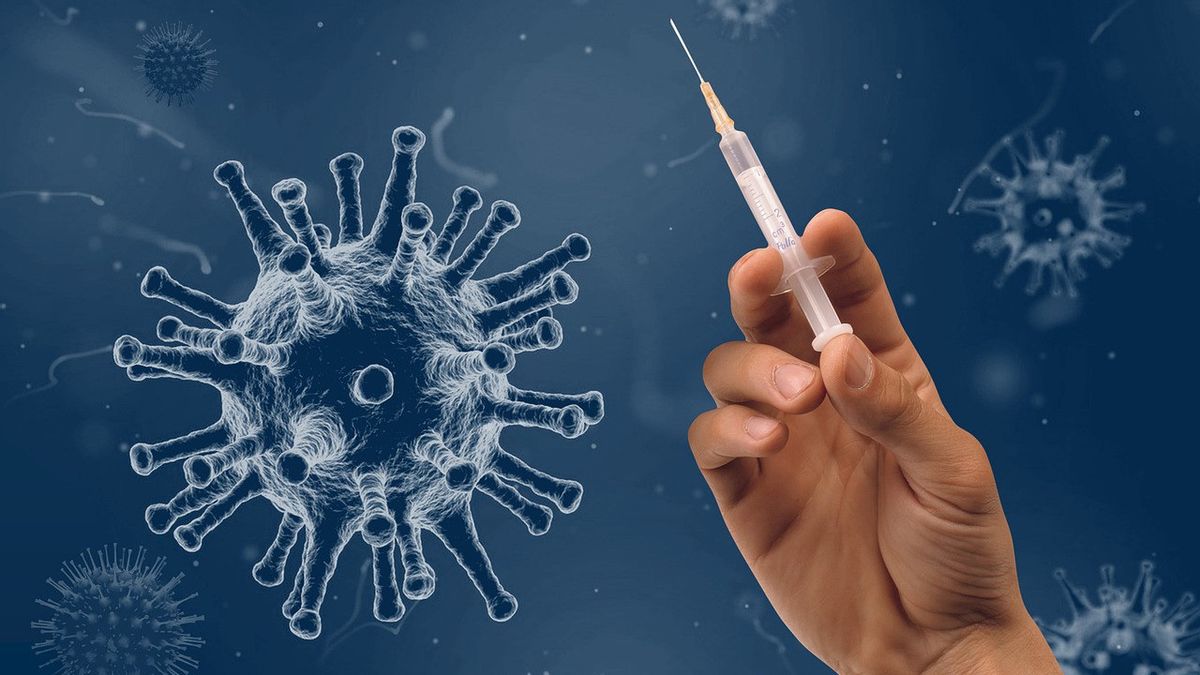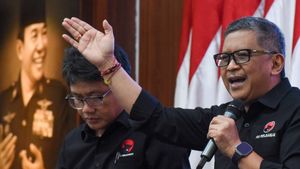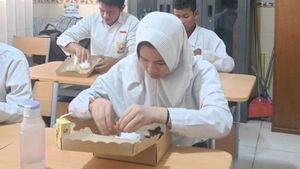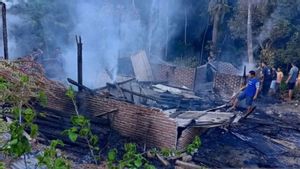JAKARTA - The Civil Society Coalition for Education in the Pandemic Period asked the Ministry of Education, Culture, Research and Technology (Kemendikbudristek) to evaluate the implementation of face-to-face learning (PTM) in schools. This step is important because the number of vaccines achieved in children is still low.
COVID-19 Reporting Volunteer, Yemiko Happy, said that the coverage of the COVID-19 vaccine for children aged 6-11 years is still low. There are still 13.5 million children who have not received two doses of the vaccine or the complete dose.
"As of March 11, 2022, there are at least 13.5 million children who still have not received the full dose of vaccine," Yemiko said in a written statement quoted on Saturday, March 19.
With this condition, Yemiko assessed, the level of susceptibility to severity and death will also increase.
Not only that, children also have the potential to experience severe complications, namely multisystem inflammatory syndrome in children associated with COVID-19 (MIS-C) and other long COVID-19 complications that have an impact on the performance and health of organs.
In addition to the issue of vaccination, Yemiko also highlighted a number of things related to PTM issues, including the lack of handling of COVID-19. According to him, when the number of cases increases, many education units are not ready and do not have a handling mechanism in case of transmission in the school environment.
In fact, there is a tendency to neglect students, teachers, or other school administrators who are exposed to COVID-19. Schools, Yemiko said, actually continued face-to-face learning without any further treatment, such as close contact tracing and follow-up examinations.
"Many schools also do not conduct testing on school residents which is carried out routinely to detect cases early," he said.
He then detailed, at least 47,489 education units have not been able to access health service facilities, such as Puskesmas, clinics, hospitals, and others. Meanwhile, 2,626 education units are reported to have not yet had a COVID-19 task force team.
"In addition, through reports submitted to LaporCovid-19, we find that schools rarely open Covid-19 cases that occur in the area of their education unit," he said.
The further problem that Yemiko explained was regarding the violation of health protocols. According to him, PTM with 100 percent student capacity will make it difficult to implement health protocols.
Moreover, based on reports from residents from January 1, 2022 to March 12, 2022, it was dominated by violations of health protocols in the education unit with 163 reports.
"The reported violations are quite diverse, ranging from not checking the temperature, inadequate hand washing facilities, to the use of masks and maintaining a distance that is not optimal," said Yemiko.
"The lack of awareness and shared commitment as well as the absence of regular supervision makes violations of health protocols in the school environment actually carried out openly and are considered normal," he added.
With these problems, the coalition then urged the Ministry of Education and Culture to evaluate the implementation of PTM in schools.
"The Civil Society Coalition for Education in the Pandemic Period encourages the government for the Ministry of Education and Technology to conduct a thorough evaluation of the implementation of face-to-face learning, especially the readiness of education units in handling COVID-19 in collaboration with the local Education Office," he said.
Not only that, the Ministry of Education and Culture must ensure that all PTM policies are based on field data and the latest scientific data on the impact of COVID-19 on children.
Meanwhile, the central and regional governments are urged to carry out regular monitoring and supervision in the implementation of PTM. "This includes urging schools to be transparent regarding COVID-19 cases in their schools, so that close contacts are tracked, examined and handled," said Yemiko.
"The risk of COVID-19 transmission in schools must be prevented and anticipated with the basics of pandemic control, such as the application of health protocols and supporting facilities, as well as strong surveillance. This effort must continue to be evaluated in order to avoid risks that can endanger children and the wider community, " he concluded.
The English, Chinese, Japanese, Arabic, and French versions are automatically generated by the AI. So there may still be inaccuracies in translating, please always see Indonesian as our main language. (system supported by DigitalSiber.id)













